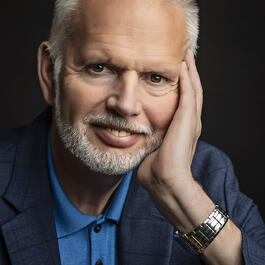I've recently discovered a pair of interesting characters, or influencers, you might say, and I've been binging on their podcasts and blog content for a few weeks now. Their names are Jason Fried and David Heinemeier Hansson, and the two are... well, they're something else.
Okay, first, it's not really correct to say that I've discovered them recently, it's more like I rediscovered them. Both have been in my peripheral vision for years, and I had already read a book that they penned together. The book was called Remote, and I believe it came out about a decade ago, but I read it in 2016. So that's a few years already. Before that, they wrote Rework, which I haven't read yet, but which I think provided the bulk of material that I'm enjoying right now in podcast form.
Now, eight years later, I stumbled upon an interview Jason did with Lenny Rachitsky, who hosts a product management podcast, and this started a whole binge listening experience for me, finding other interviews Jason did, and by the way, a shameless plug, if you want to listen to someone's guest appearances on different podcasts, the tool you should use is Padverb, which I helped create. I'm going to put a link to it, but anyway, I digress.
So, Jason and David, what do they do? I guess it would be factually correct to describe them as entrepreneurs, although that wouldn't really do them justice, because they're more like practicing philosophers, and also because I think they would hate the very term entrepreneur, I think they prefer makers or something. On the business side, they jointly run a medium-sized company called 37 Signals, which they started, and which makes several group communication tools, products, the flagship product is called Basecamp.
The company supposedly posts eight-figure profits every year, and for a company that was bootstrapped without much in the way of investments, that's pretty freaking good, and that provides the first sort of talking point, or the first received idea that they attack, is that you need to have investors to launch anything successful in this tech environment. But there are other received ideas that they attacked, and that list is long, very entertaining, I enjoyed their reasoning and how they structure... how they tell their experience, how they structure their argument.
Sometimes they go a little far, sometimes, I totally agree that you don't need so many meetings and Zoom calls, I totally agree that working in physical proximity is not critical, but they've attacked in a kind of entertaining way the whole concept of the MVP, even the sacred cow of agile methodology, the two-week sprint.
One thing I sort of felt they were going too far with, or rather David was going too far with, is the attack on static typing in programming languages. I'm not going to go into technical details, but there is a reason why most languages do have static typing, because it saves a lot of work later after a product is launched. And of course, David comes from Ruby, which doesn't have static typing, it's a dynamic language, so he carries with him this kind of, this sort of philosophy of "just winging it." Anyway, I'm going to leave that discussion aside for the moment.
But here's the thing. I really.. Like I said, I've been enjoying their stuff, I've been binging on it, mostly agreeing, except the above thing, but I recently started sort of analyzing my agreeing with it, and I kind of came to the conclusion that maybe there's like a slight logical fallacy there. Because if you boil down their whole argument, it's basically that they are these guys that are commonsensical, normal, very much like the listener. They started this company by themselves, no investors, with all their.. you know... way of doing stuff that is, like I said, commonsensical. And they succeeded to the level that is beyond what most people even dream of, let alone, you know, can realistically achieve. And therefore, they say, you don't have to follow all these kind of standard practices. Instead, you can go with their approach. Of course, it doesn't guarantee anything, but it's kind of like, we did it, so why can't you?
Well, you know, suppose this is all true, and I mean, it is all true. But the catch is that they did it at a certain point in time. And also, who are exactly they?
So Basecamp, their flagship product, their cash cow – it's a very successful software as a service type business with over 100,000 paying customers. 100,000 or probably more, way more, but 100,000 is a good ballpark.
That company is led by Jason and David, who, you know, who sold way more than 100,000 books. I think it's actually closer to a million or maybe more than a million. They've been blogging not just for years, but for decades. They've done interviews, talks, presentations. My guess is their total audience is at least in the millions.
But in addition, David, as I've only recently found out, is the very person behind a very popular framework called Ruby on Rails, which I'm highly unlikely to ever try. But given how many people use Ruby on Rails, I would venture to guess that even a small fraction of them would be a huge, if not decisive, audience for Basecamp. Even a small fraction of them decided to subscribe to Basecamp, you know, that alone would make it super successful.
So is it possible that their success as "tech makers" and philosophers is partly due to the fact that they're famous, somewhat famous, to the tune of millions, in the perfectly targeted crowd of potential customers, which by itself almost guarantees that they're successful?
Does this strike you as a logical fallacy to think that their advice could be applicable to others? I'm not sure. I'm just asking.
So yeah, it's a question. What do you think? Asking for a friend.






